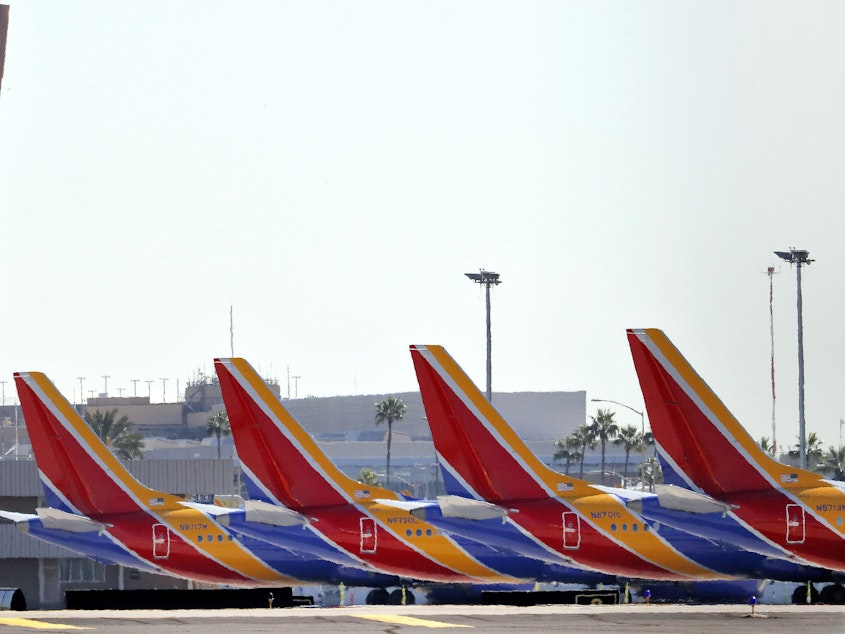Former Boeing engineer says crashes raise questions about regulation of 737 Max

A former Boeing flight controls engineer says the second crash of a 737 MAX aircraft raises questions about how the company and regulators responded to the first crash.
Peter Lemme, a Kirkland-based consultant on satellite communications for aircraft, did early analysis of the crash in Indonesia, looking at an anti-stall system on the jet. After that crash, the FAA and Boeing provided directions to pilots about how to respond in situations like the Lion Air pilots faced.
But Lemme said the later crash in Ethiopia showed that those directions weren’t adequate.
“Why didn't we learn those issues earlier and provide better instructions, rather than waiting for Ethiopian (Air) to discover those in flight, tragically,” he said.
Ethiopian investigators reported that the pilots of that jet followed Boeing's directions for recovering after a malfunction in the anti-stall system, but they could not regain control of the aircraft.
Even after the first crash, Boeing and the Federal Aviation Administration resisted grounding the 737 MAX jets. But the FAA eventually did act, saying it had new information from the later crash.
Boeing acknowledges there was a problem with the anti-stall system, called MCAS. Chairman and CEO Dennis Muilenberg said in a video statement that in each crash, bad angle-of-attack data caused the MCAS to drive the nose of the plane toward the ground. That data comes from sensors on each side of the airplane.
“It’s our responsibility to eliminate this risk,” Muilenberg said. “We own it and we know how to do it."
Muilenberg apologized again for the loss of life in the two crashes -- a total of 346 people were killed.
“All of us feel the immense gravity of these events across our company and recognize the devastation of the families and friends of the loved ones who perished," he said.
Muilenberg also promised that when the 737 MAX is cleared to fly again, it will be one of the safest aircraft ever built.
Lemme left Boeing decades ago but has written extensively on his website about the recent crashes. He has been subpoenaed by a federal grand jury pursing a criminal investigation of the crashes.
Lemme also said that the fundamentals of the Boeing 737 MAX are safe.
"The basic air frame hasn't changed dramatically, the systems are proven,” he said. “It's really just a case of adding some features in that Boeing didn't fully appreciate. And they've made mistakes and they need to fix those. But I believe the airplane is perfectly safe once we get these changes in."
But Lemme also says Boeing and regulators should look beyond the anti-stall system’s problems.
"Is this all that needs to be done to make the airplane as safe as it could be?” he said. “I'm not sure those answers are clear yet, the Ethiopian data is just coming forward.”


